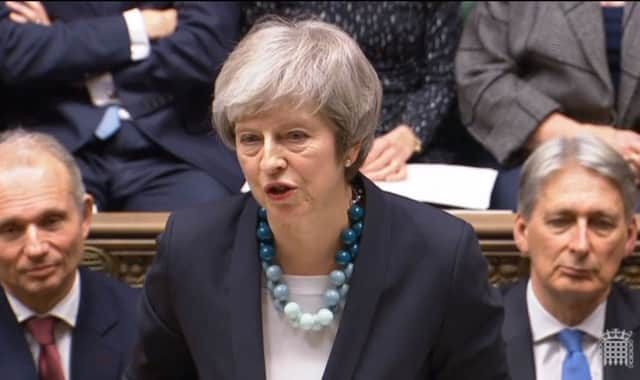Borders and backstops


Northern Ireland business, in all sectors, have carefully considered the extra burdens and opportunities a potential backstop creates for trade and has come out strongly in favour of a withdrawal agreement with the EU.
While the border on the island of Ireland has historically been a symbol of division the backstop is intended to ensure as a last resort that it remains an open border, regardless of whatever future trading relationship may evolve between the UK and EU.
Advertisement
Advertisement
Business in Northern Ireland also recognises the opportunities that might arise in the future in the unlikely event of the backstop being applied, as having the “best of both worlds”. Being the only region of the UK able to continue to trade unfettered into both the UK and EU single markets, free from customs, sanitary/phytosanitary controls and rules of origin checks and with the full protection of UK law offered for Northern Ireland supplies into Great Britain.
In these circumstances this would make Northern Ireland the most attractive place in Europe to set up a manufacturing facility, offering for the first time in a generation the opportunity for Northern Ireland to “pay its way” within the UK economy.
Any reworking of the backstop as demanded by the UK parliament will involve some very tough negotiation and it will be a major challenge for Therese May. Failure to satisfy MPs will cause delays and further extend the period of uncertainly which is seriously damaging to industry and the economy – or potentially could lead to exit without a deal, with the UK defaulting to the status of a third country, subject to third country rules and tariffs applying to our exports into the EU.
For Northern Ireland this means a hardening of the border with tariffs, checks and regulation adding massively to the cost of doing business with the EU, often making trade impossible, regardless of whether these checks are implemented at the border, on arrival at their destination or at some other point in the supply chain. The fact is they will incur cost, inefficiencies in transport and logistics. The extent of the challenge will be determined by the rate at which the UK may diverge from EU in the areas of product standards and duties.
Advertisement
Advertisement
Should the tariff rates charged to third countries be applied the potential for smuggling is greatly increased. Tariff differentials on the island would create a strong incentive for smugglers to undercut honest traders.
This activity is already well-established along the 310-mile land border (with over 200 road crossings) with an estimated 12% of cigarettes and fuel smuggled at a cost to the Exchequer estimated at £112m per annum.